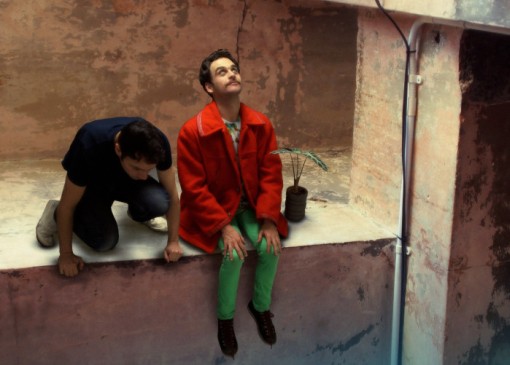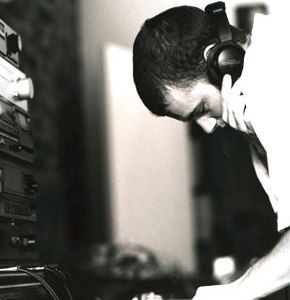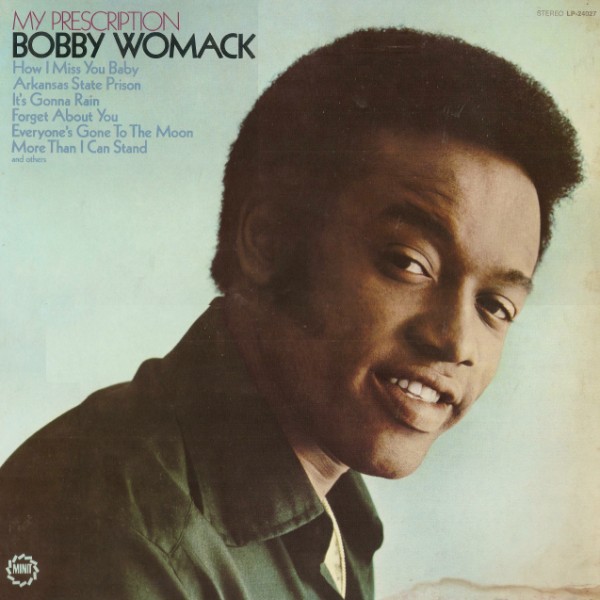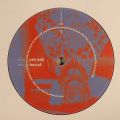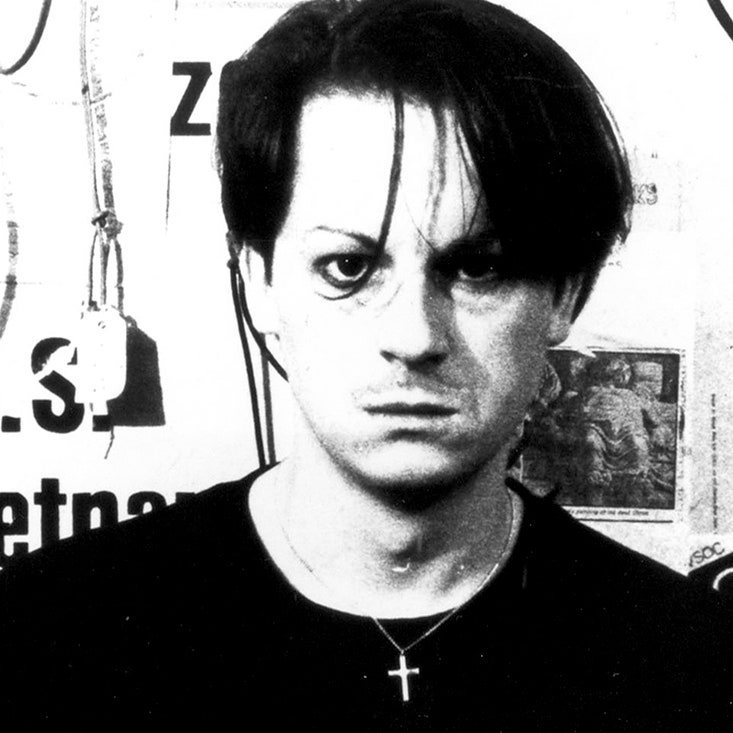
Following his death, ‘Join The Future’ author Matt Anniss traces the career of sonic adventurer, electronic music pioneer and UK techno mainstay Richard H Kirk in 20 tracks
When Innate asked me to put together this feature, the idea was to pick 10 tracks to represent the late, great Richard H Kirk’s career. That’s all well and good, but Kirk’s discography spans 43 years, with multiple twists and turns along the way, as well as countless collaborations and numerous overlooked aliases.
For that reason, I’ve decided to chart the evolution of Kirk’s career in 20 records. There are a few well-known tracks in there – stone cold classics if you will – but also plenty of album tracks, hard-to-find B-sides and digital-only outings from the last decade of his career.
On another day, the selection would be totally different; as it is, I think this provides a decent snapshot of his work.
Cabaret Voltaire – Talkover (1978)
Where it all began, quite literally: the opening track on Cabaret Voltaire’s first single for Rough Trade. Sparse and minimal electronic dub doused in delay, it still sounds unearthly and otherworldly.
Cabaret Voltaire – Western Mantra (1980)
Taken from 1980’s trippy and low-slung Three Mantras album on Rough Trade, this is the original Cabs line-up (Kirk, Mallinder and Watson) at their most intoxicating, stretching out a psychedelic post-punk groove over 20 minutes. Expect weighty dub-wise bass, squally guitars, delay-laden solos, abstract vocals and oddball samples.
Richard H Kirk – Outburst (1980)
Kirk’s first solo outing was Disposable Half Truths, a cassette-only affair (later reissued on CD by Mute’s Grey Area offshoot) on Throbbing Gristle’s Industrial Records. ‘Outbursts’ is at the very heart of the album. Rooted in the music concrete style tape experiments that were one of his early hallmarks, it’s a trippy slice of drum machine-driven sparseness that in hindsight sounds like a prototype for minimal techno.
Cabaret Voltaire – Sensoria [12” Version] (1984)
Quite possibly the Cabs’ single greatest dancefloor moment – though during their electro-influenced phase in the mid 1980s, there were many others, EG ‘Yashar’ and ‘Crackdown’ – ‘Sensoria’ is near perfect NYC electrofunk/Sheffield electrofunk fusion. Over the years it has become one of their most celebrated singles, partly thanks to a promotional video that is now a permanent exhibit in New York’s Museum of Modern Art.
Peter Hope & Richard H Kirk – Leather Hands (12 Mix) (1985)
During the ‘80s and ‘90s, Kirk collaborated with many other Sheffield-based musicians, DJs, producers and vocalists. In 1985 he joined forces with The Box’s Peter Hope for a 12” on the Cabs’ DoubleVision label, ‘Leather Hands’ (the pair later recorded a full album, Hoodoo, for local label Native Records). This is the full extended version – a typically eccentric, oddball chunk of post-electro industrial funk that notably includes both sharply edited Fairlight stabs and – before it was fashionable to do so – TB-303 squelches.
Richard H Kirk – Hipnotic [12” Mix] (1986)
More solo mid-‘80s action, this time with Richard adding a touch of early deep house flavour to his then trademark blend of electro and industrial funk. A rolling, vocoder-sporting, intergalactic delight.
Wicky Wacky – Let’s Get Down [Acidtronics Mix] (1988)
Never officially released – promos exist, but that’s it – ‘Let’s Get Down’ was Kirk’s first foray into acid house and is the kind of intensely percussive, sleazy jack-track that would have delighted the footworkers and drillers who flooded to Sheffield’s Jive Turkey party every weekend. The intense pots-and-pans percussion prevalent throughout makes it sound like an unlikely studio collaboration between mid-80s Cabaret Voltaire, Liquid Liquid and Phuture.
Success – Tripwire (Deep Bass Strip Down 808) (1990)
In 1990, South Yorkshire alt-rockers Screaming Trees were bored of making indie music, so their label, Native Records, sent them into Western Works with Richard H Kirk. The latter handled sequencing, programming and production, working to their instructions, before completing a suite of mixes of his own. This is the pick of them, the sub-heavy, percussion-rich ‘Deep Bass Strip Down 808’ version. You can find it on the Tripwire EP on Ozone Records.
Xon – Midnight Express (1991)
Amongst the Sheffield scene of the ‘80s and ‘90s, Kirk found many soulmates. One was Warp Records co-founder, FON Studios in-house engineer and fellow bleep & bass pioneer Robert Gordon. Their sole collaborative EP as Xon, 1991’s Mood Set, remains one of the most timeless, weighty and alien-sounding UK techno 12s of all time. ‘Midnight Express’, the record’s A-side, is pleasingly clonky and strange. Incidentally, Robert Gordon once told me they imagined this as a kind of electronic jazz track. It certainly has unusual timing, as anyone who has tried to mix it in during a DJ set will attest.
Cabaret Voltaire – Vibration (1991)
Between 1989 and ’92, Kirk made a number of bleep & bass tracks – not just as part of Sweet Exorcist, but also with Cabaret Voltaire. There were a handful of tracks on 1990 LP Groovy, Laidback & Nasty, but more on their 1991 follow-up, Body & Soul. ‘Vibration’, a clanking, clonking, sub-heavy workout, is one of the weightiest. It sounds like it was tailor-made for Sheffield clubs at the time (which, to be fair, it probably was).
Sweet Exorcist – Popcone (1991)
The Sweet Exorcist catalogue is relatively thin, but every track is sonic gold. I could have chosen ‘Testone’, ‘Per Clonk’, ‘Mad Jack’, ‘Clonk’s Coming’ and many others, but instead I’ve opted for this post-Warp jam that originally appeared on Kirk’s Plastex label. It’s one of the weightiest and hard-to-pigeonhole club cuts that Kirk made with “Sweet Ex” partner DJ Parrot – a throbbing, sub-heavy collision of polyrhythmic drum breaks, creepy melodies and sweaty South American samples. Proper dancefloor voodoo.
Sandoz – Beneath The City Streets (1993)
Over recent years, Sandoz has become Kirk’s most celebrated solo alias, in part thanks to an EP of forgotten favourites on Music From Memory offshoot Second Circle. The project was his most consistently dub-wise, though initial outings focused more on tribal-tinged, sometimes polyrhythmic, post-bleep techno. ‘Beneath The Streets’ is his re-invention of heavy steppers reggae with a typically paranoid, IDM-era twist. You can find it on the album Intensely Radioactive.
Electronic Eye – Datacrime (1994)
Kirk released a number of loosely conceptual releases over the years, with his fear of Britain becoming a surveillance state providing inspiration at different points over the course of his career. Perhaps the most famous example is his 1994 album as Electronic Eye, Closed Circuit. ‘Datacrime’ is one of numerous fantastic tracks from that album: a hypnotic, dub-fuelled ambient techno roller that increases in intensity throughout.
Cold Warrior – Yellow Square (1996)
Throughout the 1990s, Kirk kept one foot on the dancefloor, and during the middle of the decade released a number of floor-friendly EPs in quick succession, all of which were credited to previously unseen aliases. Many of these appeared on Alphatone – another of Kirk’s labels – and the imrpint’s whole discography is worth exploring. ‘Yellow Square’, the title track from his sole 12” as Cold Warrior, is jaunty, joyous, sub-heavy and impssoble to pigeonhole.
Dark Magus – Arma Gideon (1997)
It would be fair to say that Dark Magus was not one of Kirk’s better-known pseudonyms. He used it for a sole album, 1997’s Night Watchmen. Amongst its multiple delights is this mutation of the then rapidly developing drum & bass sound.
Al Jabr – Hard Rain (1999)
Dotted throughout Kirk’s vast solo and collaborative discography are a number of cuts that make use of samples from Black American funk and soul cuts of the 1970s. There are a number of Sweet Exorcist’s barely known Spirit Guide To Low Tech album. Here’s another example from Kirk’s 1999 solo album as Al Jabr. A funky, head-nodding downtempo groover, it’s an overlooked gem from a time when club second rooms were all about hip-hop tempo breaks and pleasingly stoned grooves.
Reflexiv – Dirty Bomb (Party On) (unknown, released 2003)
In the early 2000s, Kirk’s InTone label released a pair of compilations, URP v1 and URP v2, that were entirely made up of tracks he’d recorded – but not previously released – during the final four years of the previous decade. What made the set unusual was that Kirk dreamed up new aliases for each of the tracks (which goes some way to explain the volume of pseudonyms on his Discogs profile page). This one, the sole track credited to Reflexiv in his catalogue, is a dub-fuelled techno stomper.
Orchestra Terrestrial – Umladen (2011)
Kirk’s playful and extensive use of aliases made it easy to miss interesting projects, or even stumble across them by accident. The Orchestra Terrestrial project is a good example. He released two albums under the pseudonym, both of which offered a krautrock-influenced take on ambient that tended towards the trippy and mind-altering. ‘Umladen’ is the title track from the second of these, which was released digitally in 2011.
Richard H Kirk – Lets Jack (2017)
2017 solo album Daesin – Kirk’s last under his given name – received relatively little press at the time, despite a back-to-the-future approach that mixed abrasive electronics and industrial-era sound collage techniques with political themes and a world-weary sense of dread. ‘Lets Jack’, a kind of dystopian, post-industrial take on acid house with a Cabaret Voltaire twist, is one of the album’s most forthright cuts.
Cabaret Voltaire – Shadow of Funk (2021)
Kirk’s decision to re-launch Cabaret Voltaire as a solo project late last decade was a controversial one, though there’s no denying that the records he subsequently released felt like bona fide CV releases. The Shadow of Fear album (2020) offered a return to the band’s industrial roots with a nod towards their later techno explorations, while the later drone albums (Dekadrone and BN9Drone) were immersive, often unsettling ambient excursions that harked back to his experimental attic tapes of the 19870s. ‘Shadow of Funk’, the lead cut from Kirk’s final 12” as Cabaret Voltaire, is dense and intense industrial funk – a fitting finale to a career full of boundless creativity.

